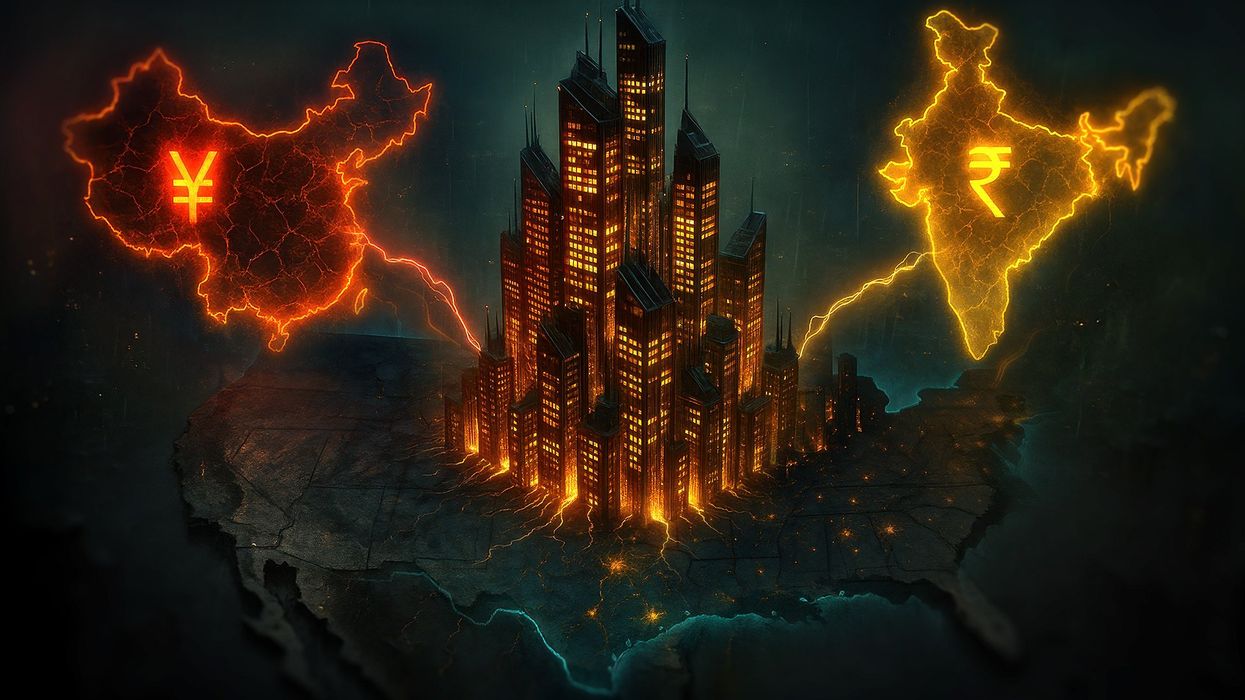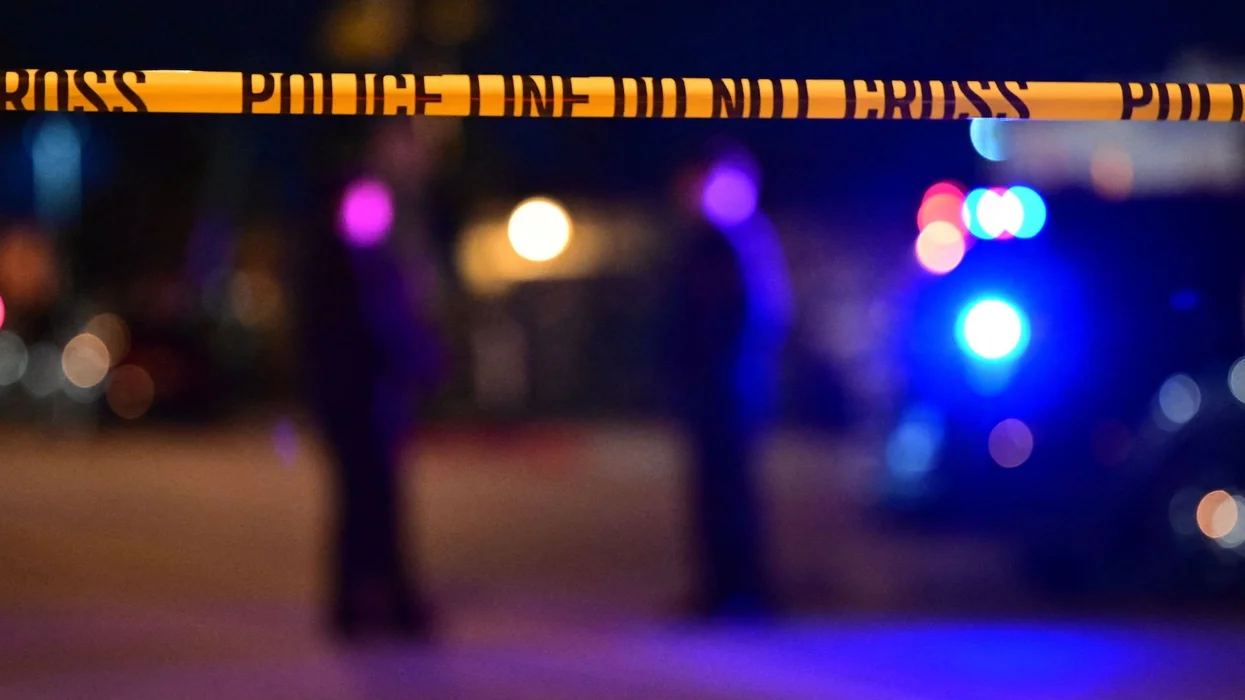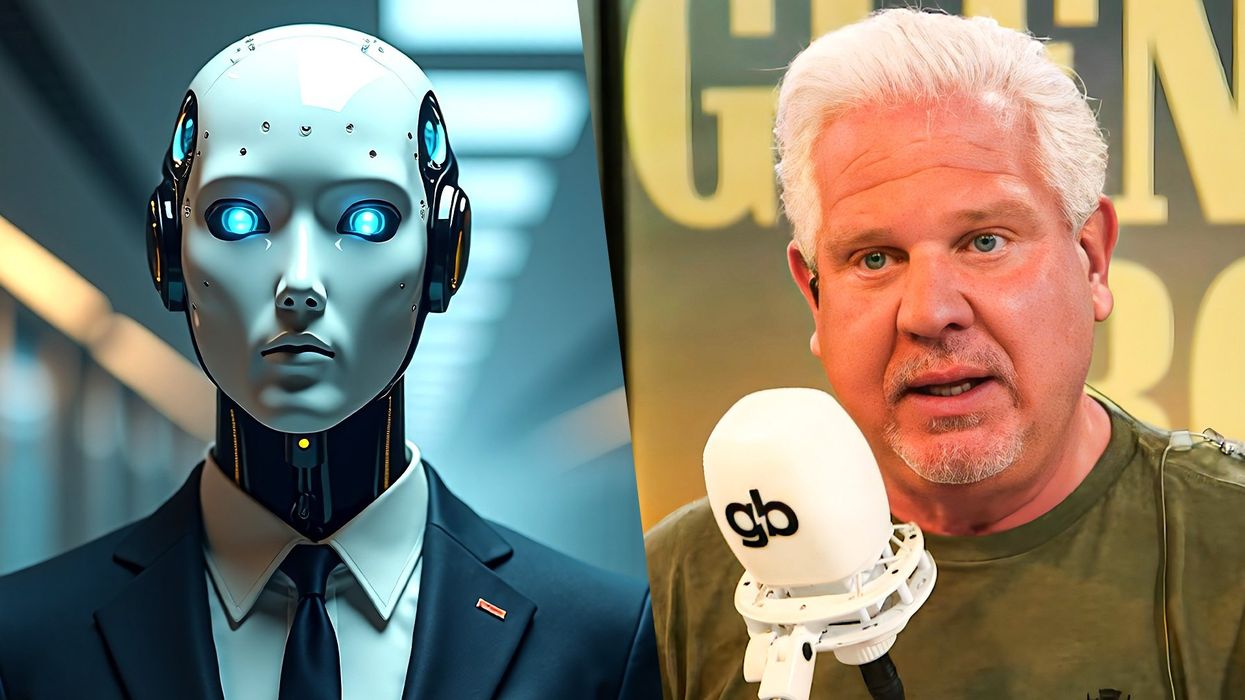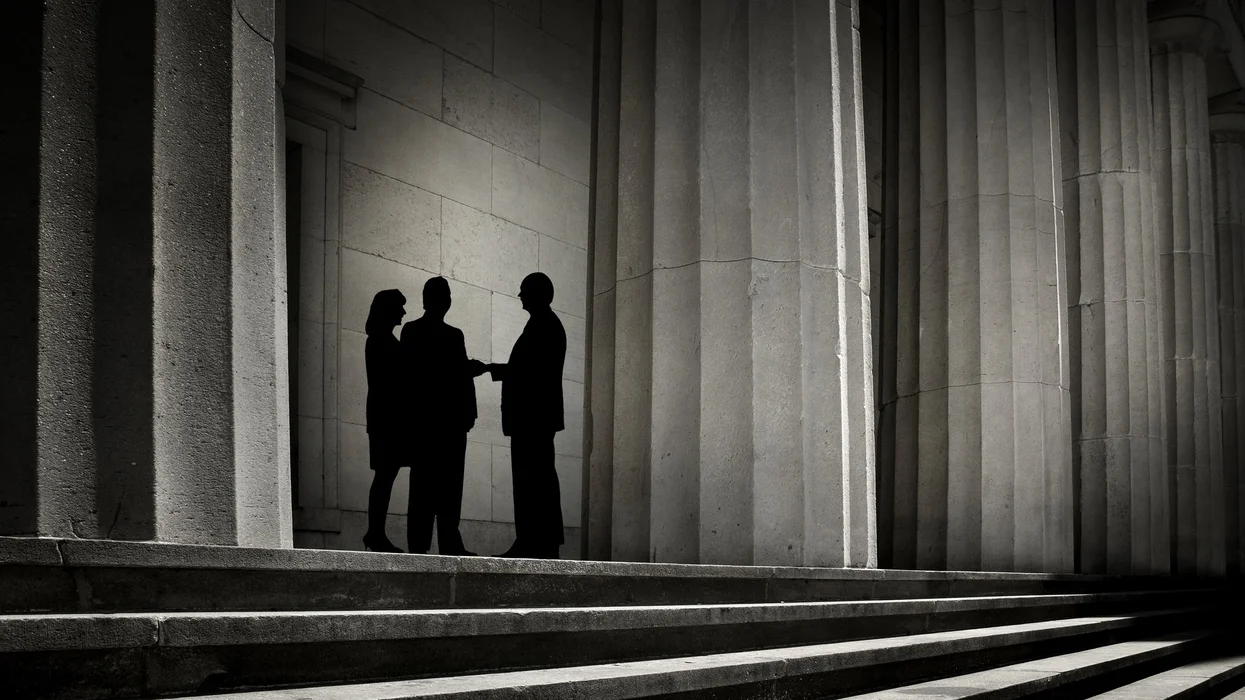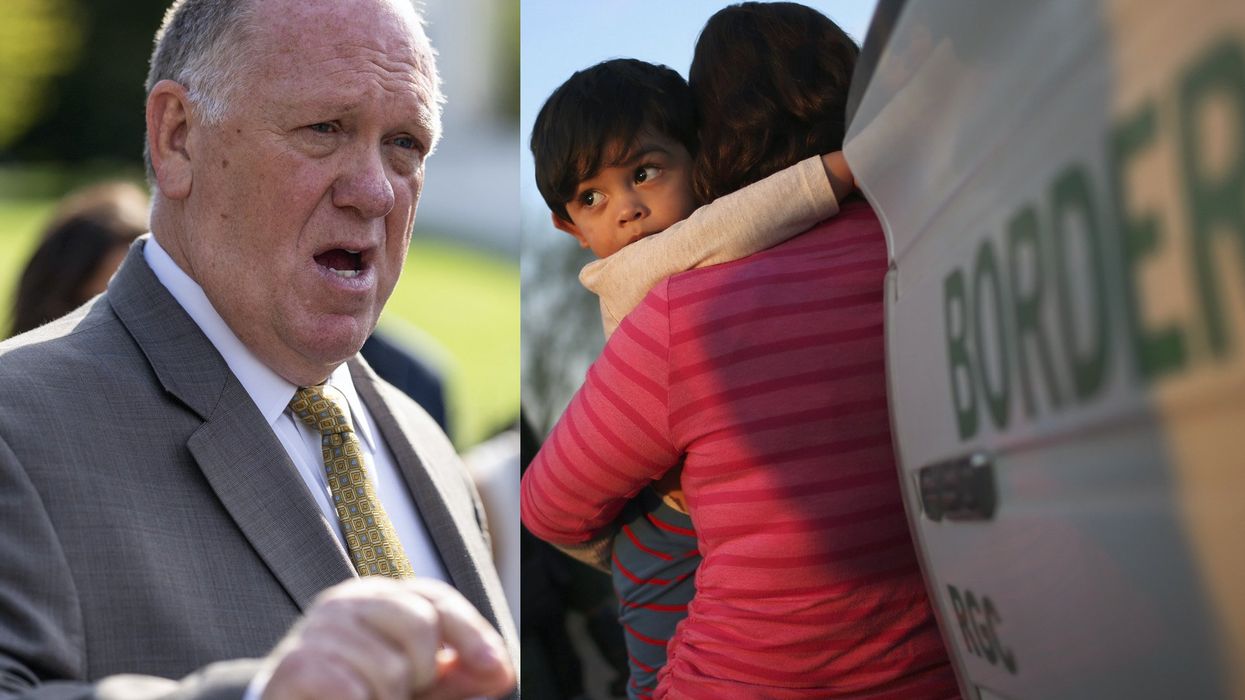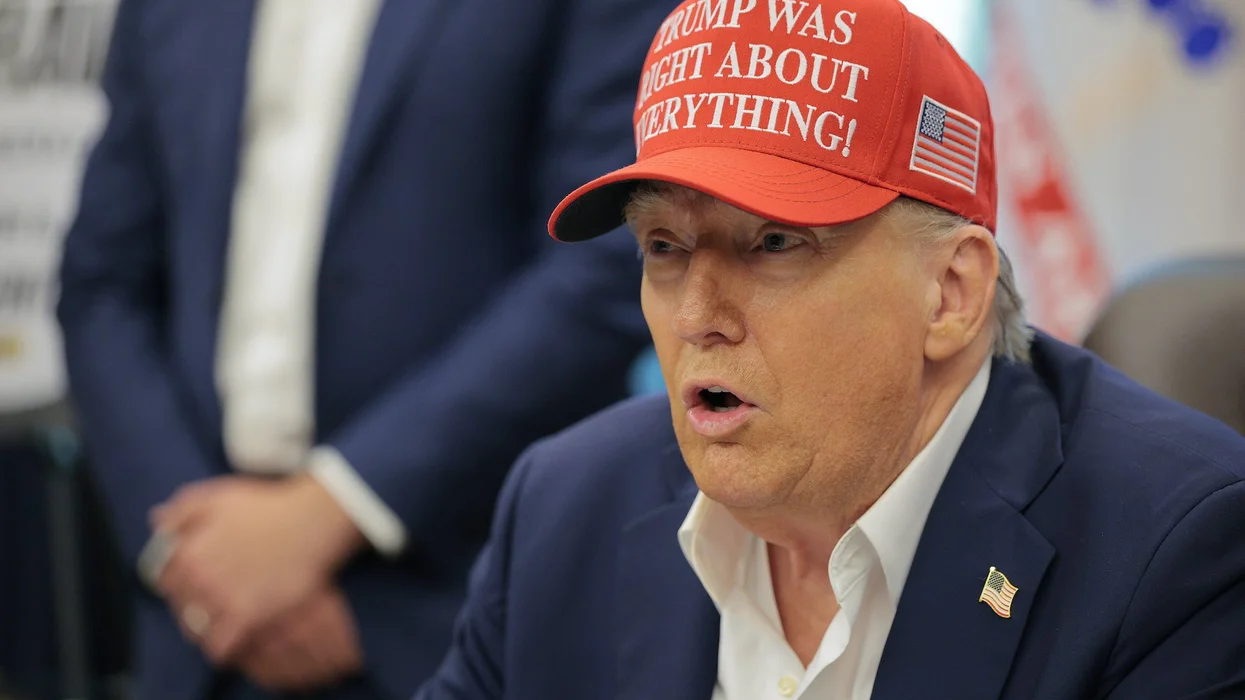In Ohio, 17-year-olds who will turn 18 before November's presidential election will be allowed to vote in the Buckeye State at Tuesday's presidential primary, a judge ruled Friday. The judge's ruling is expected to offer a boost to Democratic presidential candidate Bernie Sanders, who has a groundswell of support among young people.
The decision reversed previous instructions from Ohio's election chief just days ahead of Tuesday's primary and amid early voting. Ohio Secretary of State Jon Husted, a Republican, initially vowed to appeal the ruling, but ultimately decided not to fight the ruling.
Husted argued that the timing would give his team "no effective way to responsibly make the changes necessary to implement an orderly election." He directed the counties 88 county elections boards Friday to comply with the new ruling, but he was not happy about it.
 A bilingual sign stands outside a polling center at public library ahead of local elections on April 28, 2013 in Austin, Texas. Early voting was due to begin Monday ahead of May 11 statewide county elections. The Democratic and Republican parties are vying for the Latino vote nationwide following President Obama's landslide victory among Hispanic voters in the 2012 election. (Photo by John Moore/Getty Images)
A bilingual sign stands outside a polling center at public library ahead of local elections on April 28, 2013 in Austin, Texas. Early voting was due to begin Monday ahead of May 11 statewide county elections. The Democratic and Republican parties are vying for the Latino vote nationwide following President Obama's landslide victory among Hispanic voters in the 2012 election. (Photo by John Moore/Getty Images)
"This last minute legislating from the bench on election law has to stop," he said.
In order for the 17-year-olds to vote, they must already be registered to vote in order to cast a ballot in the swing-state's primaries. Approximately 7.6 billion Ohioans are registered voters, which includes more than 16,000 17-year-olds, according to Husted's office.
At least 20 other states currently allow 17-year-olds to vote in presidential primaries and caucuses, but the rules sometimes vary depending on political parties, according to FairVote, an organization that tracks electoral issues.
Though the issue of whether or not 17-year-olds should be allowed to vote in presidential primaries has been disputed, they are already allowed to cast votes on congressional, legislative and mayoral contests in Ohio.
The Sanders campaign, which had previously filed a federal lawsuit over the issue, praised Friday's decision.
"This is a huge victory for 17-year-olds across Ohio," Sanders campaign attorney Brad Deutsch said. "Their votes for presidential nominees will now count when they vote on either Tuesday or over the weekend in early voting."
Franklin Country Common Pleas Court Judge Richard Frye, who was asked to issue an emergency order in the state lawsuit blocking Husted's instructions that kept 17-year-olds from voting in Tuesday's primary, said in his ruling that from 1981 until 2012, no secretary of state had interpreted the law in the way Husted has.
"That is, it was not until 2012, when the current Secretary discovered this new limitation on 17-year-old voting, that anyone holding the office publicly said that selection of Presidential convention delegates was off-limits for 17-year olds," Frye wrote in his ruling.
One of the teenage plaintiffs involved in a lawsuit against Husted said he was "super ecstatic" about the ruling.
"I think it's my right to be able to vote," 17-year-old Brian Bush said. "Obviously, local and state elections are just as important. But for something as big as the president, I feel like I should be able to voice my opinion in it."
Earlier Friday, a federal judge temporarily halted the lawsuit brought by Sanders and several teenagers, saying the court would abstain from a decision until the state court ruled on a similar lawsuit over the same issue. One of the central issues between both suits was a distinction between "elect" and "nominate."
An election manual for officials issued in 2015 by Husted said 17-year-olds can vote "solely on the nomination of candidates," and not in the presidential primary "because delegates are elected and not nominated."
However, the teenagers' attorney Rachel Bloomekatz argued that the delegates are not assuming any kind of office, but instead serve as the voters' surrogates at the party's nominating convention. Additionally, she said the names of the delegates corresponding to each presidential candidate do not appear on the primary ballot.
Presidential contenders earn their party's nomination by collecting a majority of the delegates awarded in state primaries and caucuses across the country.
—
Follow the author of this story on Twitter:
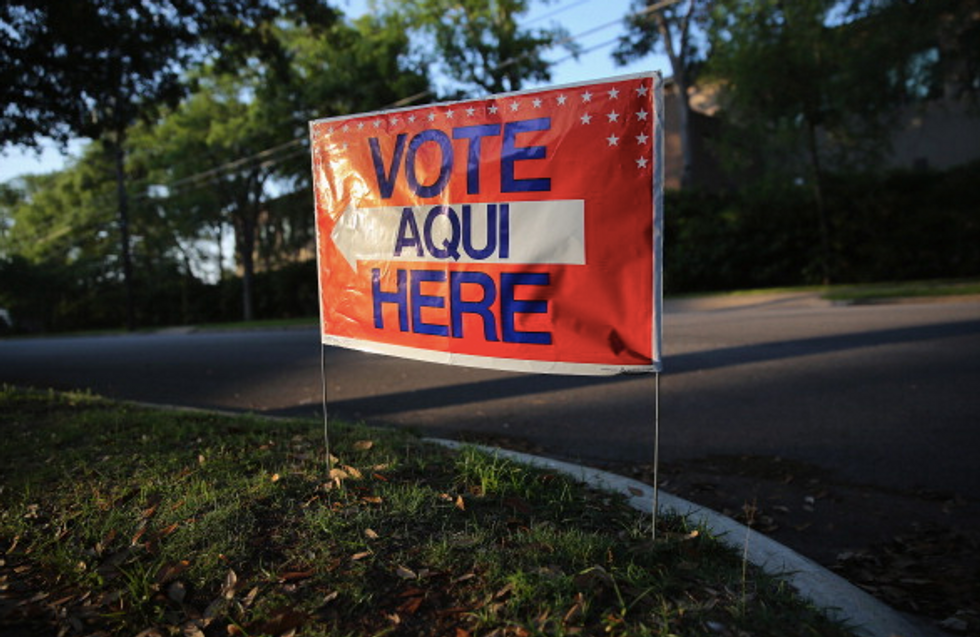
 A bilingual sign stands outside a polling center at public library ahead of local elections on April 28, 2013 in Austin, Texas. Early voting was due to begin Monday ahead of May 11 statewide county elections. The Democratic and Republican parties are vying for the Latino vote nationwide following President Obama's landslide victory among Hispanic voters in the 2012 election. (Photo by John Moore/Getty Images)
A bilingual sign stands outside a polling center at public library ahead of local elections on April 28, 2013 in Austin, Texas. Early voting was due to begin Monday ahead of May 11 statewide county elections. The Democratic and Republican parties are vying for the Latino vote nationwide following President Obama's landslide victory among Hispanic voters in the 2012 election. (Photo by John Moore/Getty Images)
